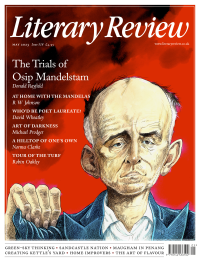Richard Cockett
From Our Drone Correspondent
The Red Hotel: The Untold Story of Stalin’s Disinformation War
By Alan Philps
Headline 464pp £22
There are plenty of cautionary tales for modern journalists, but none more instructive than that of the Anglo-American press corps in Russia during the Second World War. The shameful story of how Stalin’s lackeys managed to convert hard-bitten hacks into mouthpieces of Soviet propaganda deserves to be told in full and at length.
For now, though, we have The Red Hotel by Alan Philps, a Russian-speaking former Moscow correspondent for Reuters and the Daily Telegraph. Philps adroitly uses the experiences of the wartime correspondents incarcerated in the Hotel Metropol in Moscow to tell at least part of the story of Stalin’s campaign to dupe the West about the nature of his regime. In the words of one American journalist, the Metropol, opened in 1905 as a luxurious hangout for tsarist merchants, had by 1941 seen much better times: ‘it looked and smelled somewhat like a vast but failing whorehouse.’ The hotel provides an appropriately seedy backdrop to Philps’s tale.
As Philps himself acknowledges, his is not an academic history, more a series of stories and impressions. While these are sometimes a little too loosely connected, his book gives a superb flavour of the compromises, betrayals and self-delusions required to report on the USSR. Philps’s few heroes are the Russian translators, ‘who were the eyes and ears of the visiting journalists’. After they had served their purpose, these women and their families were sometimes made to suffer appallingly by the communists merely for having been in contact with a foreigner, something their work, obviously, required them to be. Those who tried to open their employers’ eyes just a tiny bit to what was really going on would suffer even more.
After the Nazi invasion of the Soviet Union in June 1941, the Metropol very quickly filled up with the great and the good of Fleet Street and the American press: Alexander Werth of the BBC and Manchester Guardian; Ralph Parker of The Times and, for a while at least, the

Sign Up to our newsletter
Receive free articles, highlights from the archive, news, details of prizes, and much more.@Lit_Review
Follow Literary Review on Twitter
Twitter Feed
It wasn’t until 1825 that Pepys’s diary became available for the first time. How it was eventually decrypted and published is a story of subterfuge and duplicity.
Kate Loveman tells the tale.
Kate Loveman - Publishing Pepys
Kate Loveman: Publishing Pepys
literaryreview.co.uk
Arthur Christopher Benson was a pillar of the Edwardian establishment. He was supremely well connected. As his newly published diaries reveal, he was also riotously indiscreet.
Piers Brendon compares Benson’s journals to others from the 20th century.
Piers Brendon - Land of Dopes & Tories
Piers Brendon: Land of Dopes & Tories - The Benson Diaries: Selections from the Diary of Arthur Christopher Benson by Eamon Duffy & Ronald Hyam (edd)
literaryreview.co.uk
Of the siblings Gwen and Augustus John, it is Augustus who has commanded most attention from collectors and connoisseurs.
Was he really the finer artist, asks Tanya Harrod, or is it time Gwen emerged from her brother’s shadow?
Tanya Harrod - Cut from the Same Canvas
Tanya Harrod: Cut from the Same Canvas - Artists, Siblings, Visionaries: The Lives and Loves of Gwen and Augustus John by Judith Mackrell
literaryreview.co.uk